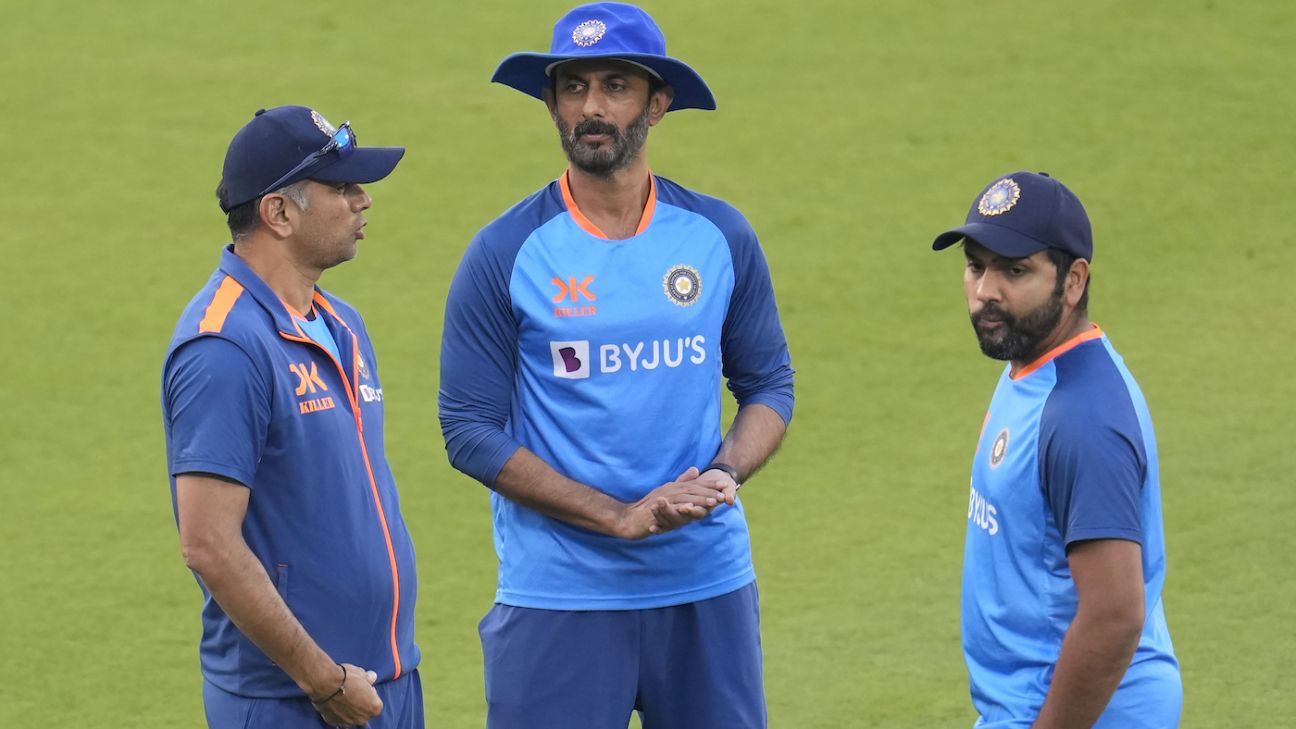
"It could be one of the reasons, because yes, there is a huge premium on results," Dravid said on Tuesday. "You draw a game like Kanpur against New Zealand, where you take nine wickets in the second innings, you draw that game and that sets you back, in a home game.
"Every team is getting results at home or are putting in really good performances at home, so there is a premium on results. You get four points for a draw and you get 12 for a win, so there is a premium on that, there's no question about it."
India began the four-Test series against Australia needing three wins to confirm a place in the WTC final. They won the first two Tests and lost the third, and all three were low-scoring matches played on pitches where the ball turned sharply from day one. There have only been three 200-plus totals in 11 innings, and only four batters - two from each side - have averages north of 30.
Under such circumstances, Dravid felt it was important for teams to have realistic expectations from their batters and set benchmarks accordingly.
"It's really about being realistic about what is a good performance on some of the challenging wickets we are playing on, not only here," he said. "If you look at the last three-four years, all over the world I think wickets have got a lot more challenging, not only here. So you have to be realistic about what the benchmarks are now, what the standards are.
"Just understanding that in these kinds of games, just one good performance can change the game. We saw that with Rohit [Sharma]'s performance [his century in the first Test in Nagpur], we've seen that many times over here. It's just being realistic in our assessment of our batsmen, their averages and their numbers, and don't really look so much into it.
"Just backing our batsmen to understand that these are challenging conditions and they're the same for both sides. And for them to be able to use it as a challenge and an opportunity to do something special. It might not necessarily be about scoring big double-hundreds, but you know there might be scores of 50-60 or scores of 60-70 somewhere might be really, really good scores in some conditions."
"I think he [Bharat] has kept beautifully for us," Dravid said. "Even though it's not a big contribution he got 17 in the first innings [in Indore], got a nice contribution in the last Test match in Delhi, he played nicely and positively.
"So yeah, you need a little bit of luck sometimes in these situations, and he's probably not had that, but no, I think he's shaping up really well, he's been playing really well. He's keeping really nicely for us which is really important as well. I think you've just got to put, sometimes, the batting performances in perspective a little bit, and be a little bit understanding of it."
"We just have to meet every condition separately," Dravid said. "These conditions might be very different to Indore last week, so I think everything's on the table. We try and put together what we think is our best side and gives us the best chance to get 20 wickets and the most balanced side.
"We've seen also at times that [the fast bowlers] haven't bowled a lot, but the kind of impact even a Siraj can have, picking up that early wicket in Nagpur, Umesh's spell the other day to pick up three wickets. So even though sometimes you may feel the bowlers are not bowling a lot, just having that balance and that ability at times to go back to a more balanced attack is really important.
"The fact that when we are able to play three spinners we bat all the way up to 9, with Axar [Patel] or [R] Ashwin batting at 9 for us depending on left-right, it's a pretty good depth we've got on the batting side of things. We have to weigh everything, weigh all the options and then decide."
Karthik Krishnaswamy is a senior sub-editor at ESPNcricinfo















 Phone: (800) 737. 6040
Phone: (800) 737. 6040 Fax: (800) 825 5558
Fax: (800) 825 5558 Website:
Website:  Email:
Email: 






